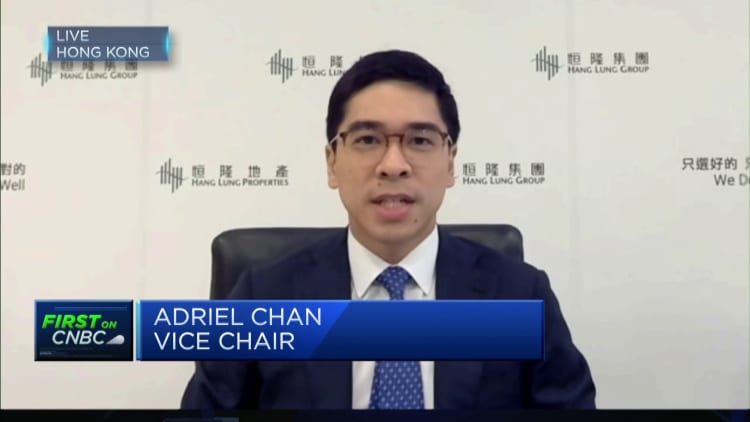China’s residential market is struggling, commercial may be bright
Commercial property is a bright spot in Chinese real estate, in contrast with the doom and gloom of the residential housing market.
Property analysts and developers said offices, warehouses and business parks are proving resilient, and continuing to turn over steady rental revenue — albeit discounted due to softer demand.
Hong Kong-listed property group KWG Group Holdings recently said earnings from rents from offices and other commercial property rose 6% in the first half of the year, even though revenue from housing development and sales in China had fallen nearly 37% from a year ago.
Likewise, property group CIFI Holdings posted a 23% year-on-year drop in home sales in China for the first half, but reported a 69.5% lift in its property investment revenue.
In July, Hong Kong’s Hang Lung Properties reported a small lift in its first half profits, which Vice Chairman Adriel Chan called a “pleasant surprise.” While the company reported lower revenue from malls and hotels due to pandemic lockdowns, prime office rents surged 16%.

“Office has done surprisingly well for us. It now accounts for about 20% of our mainland China revenue. And it’s been very resilient. I know that not all developers have had the same experience. And so yes, we would continue to look at offices,” Chan told CNBC’s “Squawk Box Asia” in late July.
Hang Lung, which primarily invests in commercial property in mainland China, saw occupancy rates at its office towers in Wuxi, Kunming, and Wuhan continue to rise, while levels in Shenyang and Shanghai held up amid dim prospects of new rentals.
Advantages for commercial sector
Chinese commercial property investors and their tenants do not face the same difficulties as their residential counterparts, which are struggling with slower sales as well as recessionary and debt pressures, said real estate advisory Lauressa Advisory partner Nicholas Spiro.
The commercial sector has not been spared the crisis of confidence that has swept across the housing market. While some investors sold assets to stay liquid, Spiro said the commercial sector generally has more supportive government and fiscal policies.
While Beijing is seeking to deflate the bubble in the residential market without crashing the economy, it is prioritizing investment in infrastructure and the new economy, which benefits the industrial and logistics property sector in particular.
Nicholas Spiro
partner, Lauressa Advisory
“While Beijing is seeking to deflate the bubble in the residential market without crashing the economy, it is prioritizing investment in infrastructure and the new economy, which benefits the industrial and logistics property sector in particular,” Spiro said.
He also sees room for growth in China’s commercial sector, with “huge scope for further development in secondary cities.”
“And Chinese companies’ conservative mindsets — which make pandemic-induced changes to working patterns more problematic than in the U.S. and U.K. — augur well for the sector in the…
Read More: China’s residential market is struggling, commercial may be bright
